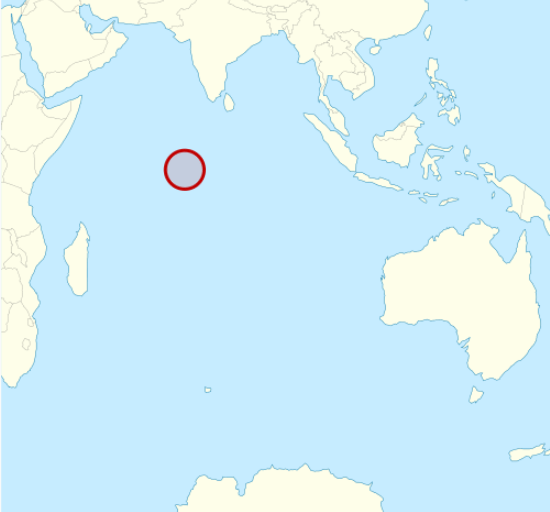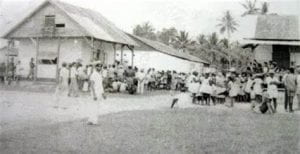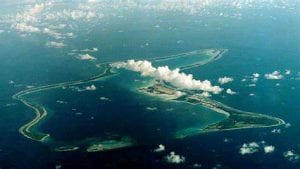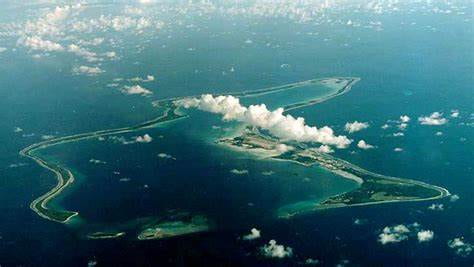
Over 60 years ago, the United Kingdom (UK) government secretly planned with the United States (US) government to forcibly remove an entire Indigenous people, the Chagossians, from their homes in the Chagos Archipelago. The Chagos Islands are a group of islands in the Indian Ocean. The UK has a long-standing dispute with Mauritius over the islands’ sovereignty. The UK separated the Chagos Islands from Mauritius in the 1960s, establishing a British Indian Ocean Territory (BIOT) on the islands. The original inhabitants of the islands, the Chagossians, were forcibly removed and relocated to other countries, including Mauritius and Seychelles. The eviction of the Chagossians has been a contentious issue, with many claiming that the UK’s actions were both illegal and unjust. The International Court of Justice (ICJ) ruled in 2019 that the UK’s separation of the Chagos Islands from Mauritius was illegal, and that the UK should cease administration of the islands.

Forced Removal
Diego Garcia, the largest of the inhabited Chagos islands, would be turned into a US military base, and the island’s inhabitants would be relocated. This is an ongoing colonial crime because according to article 9 of the Human Rights Act, “ No one shall be subjected to arbitrary arrest, detention or exile.” The UK government forcibly removed the indigenous people from their native, ancestral lands. This removal was carried out without their knowledge or consent, and they were given no say in the matter. This action infringed on their right to self-determination, a fundamental principle of international human rights law.

Loss of Livelihood
The reality was the indigenous people had been there for centuries developing their distinct culture, language, and customs. From 1965 to 1973, the UK and US forced the entire Chagossian population from all the inhabited Chagos islands to be displaced from their homeland. Both governments treated the people as if they had no human rights. The islanders were a fishing and coconut plantation community, and their forced removal from the islands cost them their livelihoods. When they were exiled, they were unable to take any of their possessions or belongings with them, and they were not compensated for their loss. This had a significant financial and social impact on their lives.
Separation from Families
“My mother cried and said to us, ‘Now we will live a very different life’” quote from Louis Marcel Humbert, born in Chagos 1955. This was in response to leaving four brothers and a sister back on the island. Unable to bring their families with them, many families were broken and left in a similar situation. The strict restrictions imposed by the UK government on access to the islands made it impossible for families to even visit those they have left behind. The governments’ merciless persecution on the grounds of race and ethnicity have resulted in thousands of families being isolated from each other. This is a continuation of the colonization and exploitation of the inhabitators of Chagos. In 1814, the Chagos Islands were ceded to Great Britain as part of the Treaty of Paris, which ended the Napoleonic Wars. The islanders have been subject to forced removal for years.

Deny Right to Return
Despite the International Court of Justice ruling that the UK’s separation of the Chagos Islands from Mauritius was illegal and that the UK should end its administration of the islands as soon as possible, the UK government has retained control of the islands and denied Chagossians the right to return. Full reparations are in order and that starts by granting passage to return back to Chagos. The US and the UK need to provide restitution by immediately lifting the ban on Chagossians permanently returning to the Chagos Islands. This is a human rights violation from over 650 years ago that has yet to be corrected. By acknowledging the islanders were removed unlawfully, both governments can work towards rectifying the situation.

